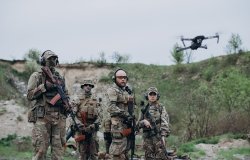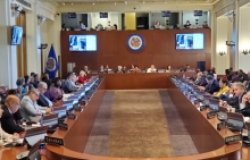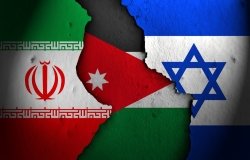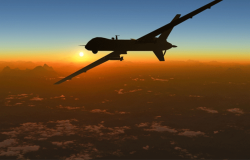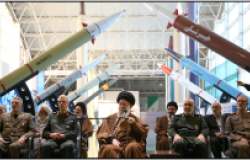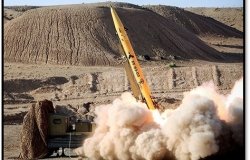Prospects for an Iranian Nuclear Deal
with Gary Samore, Director of Studies, Council on Foreign Relations
Overview
This meeting, jointly sponsored by the Center's International Security Studies and Middle East Programs, and the Los Alamos National Laboratory, was another in the ongoing Nonproliferation Forum series.
Against the background of escalating tensions with Iran over its nuclear program and the U.S. National Intelligence Estimate (NIE) of November 2007, which downplays the imminence of an Iranian weapons threat, what are the chances of a diplomatic resolution to the crisis?
To put the current crisis into context, Samore addressed the key technical aspects of Iran's nuclear program. In the worst case scenario, Iran still remains "a few years" away from having sufficient quantities of fissile material to make a bomb. Its centrifuges for uranium enrichment are somewhat antiquated and complicated to master; the available evidence suggests the Iranians have not fully done so yet. Samore believes that an all-out push to make a single bomb is not a "credible" threat: more likely, the Iranians will be patient and cautious until they can expand their facilities and increase production of enriched uranium.
From the U.S. perspective, this more likely scenario is also more troubling, as detecting covert production is extremely difficult and can't be done with total accuracy.
Samore characterized the impasse with Iran over its nuclear program not as a confrontation between forces of "good and evil," but as a clash of national interests and security politics. He noted that Iran's nuclear aspirations predate the Islamic Republic and began in the mid-1970s under the Shah.
To date, two UN Security Council resolutions have demanded that Iran suspend its uranium enrichment activities – a demand now viewed by the European Union and the United States as precondition for the resumption of negotiations – and a third resolution may be forthcoming. Secretary of State Condoleezza Rice has stated that the United States would participate in bilateral talks with Iran if Tehran freezes its uranium enrichment program. Samore argued that this key precondition is unlikely to be accepted by the Tehran regime, which now has leverage in several key areas. In Iraq, Iran's growing influence works to its advantage. In addition, the Iranian economy, which has been mismanaged through President Ahmadinejad's policies, is "cushioned" by the oil market: with $100 per barrel prices it is likely that the regime could weather any sanctions imposed upon it. And internal divisions among the outside powers work to weaken the U.S. hand.
In particular, Russia and China are considerably less concerned than the United States or its European allies about the prospect of a nuclear Iran. Russia has signaled that it would not object to a safeguarded Iranian enrichment facility, an outcome that the U.S. currently holds unacceptable. Moscow and Beijing oppose meaningful sanctions to curb Iran's civil nuclear program. In the face of Iran's growing confidence after the NIE, it is unlikely that Russia or China would vote to jeopardize their economic interests in Iran. China in particular, Samore noted, sees Iran as essentially a "gas station;" sanctions could potentially impede the vital flow of oil and gas that China relies on.
Because of its newly strengthened position, Iran is likely to delay talks until the next U.S. administration, which Tehran believes will be less likely to insist on preconditions. However, if Washington does pull back from its insistence on a precondition for talks, Iran will see this as a reward for its hard line. Samore asserted that this would further weaken the U.S. bargaining position and would further entrench the hard-line faction within Iran and further increase Iran's regional influence. Finally, Samore stated, a nuclear deal may simply not be possible. Some pragmatists would accept restrictions on Iran's "civil" nuclear fuel cycle activities, but the prospects that the Tehran regime would accept such a compromise are dim.
Ultimately, the inducements that the U.S. and its allies are prepared to offer Iran may be viewed by hardliners as "poison carrots" that could potentially undermine the regime's hold on power. Samore listed normalization of relations and security assurances as the most likely options, but was not optimistic that they would suffice. Similarly the U.S. ability to regain some leverage with Tehran and to implement a strategy of coercive diplomacy to bring about changes in Iranian policy is dependent on a level of multilateral cooperation that is unlikely to materialize, particularly in the wake of the recent U.S. NIE.
Thank you for your interest in this event. Please send any feedback or questions to our Events staff.
